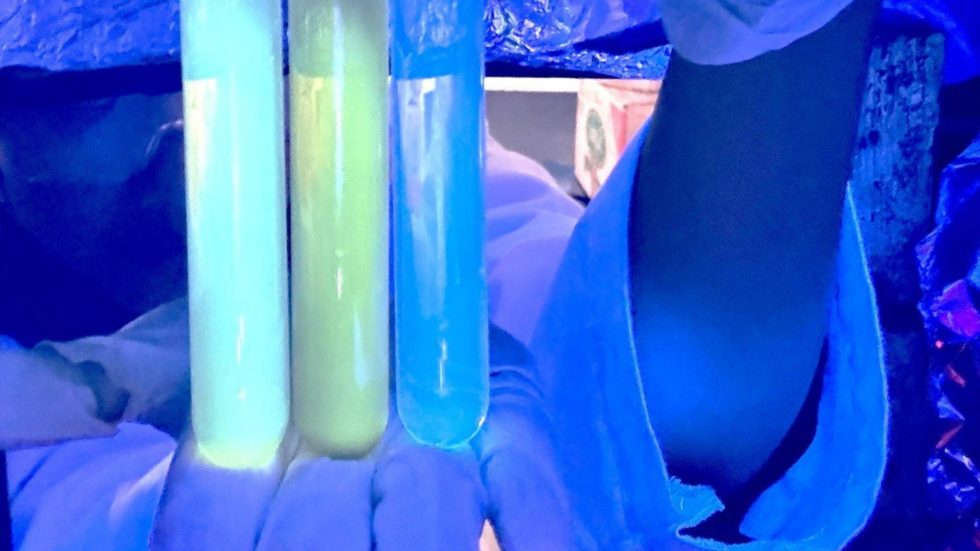UNDIP, Semarang (September 9, 2025) – Students from the Faculty of Science and Mathematics, Universitas Diponegoro (FSM UNDIP) have developed an affordable sensor based on carbon quantum dots (CQDs) to detect the presence of tetracycline antibiotics in food products such as milk and honey. The innovation marks a significant step in strengthening food safety by enabling rapid and simple detection without the need for costly laboratory equipment.
The sensor was created using a simple microwave method and affordable materials such as citric acid and urea. The resulting nanoparticles—100,000 times smaller than a human hair—can detect antibiotics in just one minute. The detection mechanism uses ON–OFF sensing, in which the green fluorescence emitted by the CQDs fades when tetracycline is present in a sample.
FSM UNDIP research coordinator Prof. Yayuk Astuti, Ph.D., explained that tetracycline residues are often found in dairy products, honey, and livestock, posing potential health risks when consumed repeatedly. “We designed this sensor to be fast, affordable, and safe to use. This innovation shows how basic science can bring real benefits, particularly in food safety,” she said.
Dr. Rahmat Nuryanto, Head of FSM UNDIP’s Physical Chemistry Division, added that the study exemplifies how fundamental science can be applied to solve everyday problems. “Prof. Yayuk is developing efficient CQD synthesis methods for use as antibiotic sensors. The results immediately touch on critical issues such as food safety and the environment,” he noted.
One of the student researchers emphasized the simplicity and affordability of the CQD production process. “We hope this research can benefit society, especially in detecting antibiotic residues in food such as milk or honey,” the student said.
Although still in its early stages, the research demonstrates strong potential for creating a low-cost, rapid, and accessible antibiotic detection technology. In the future, carbon quantum dot–based innovations are expected to strengthen food safety systems, particularly in regions with limited laboratory facilities.
FSM UNDIP continues to support innovative research with real-world impact. Through the development of technologies rooted in fundamental science, the faculty contributes to addressing food and health challenges, aligning with the university’s vision of becoming a world-class institution actively advancing sustainable development.
Reported from the website of the Faculty of Science and Mathematics, UNDIP










